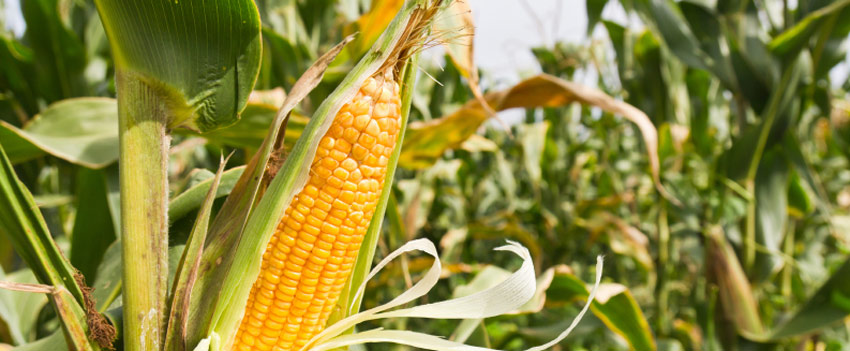According to a press release from the Agricultural Ministry of Lower Saxony dated 1 March 2013, a delivery of corn feed from Serbia was found to exceed the maximum limits for aflatoxin B1. The maximum threshold was exceeded roughly ten-fold. About 10,000 tonnes of the raw material had already been delivered and processed by several manufacturers into compound feed. According to a statement from the Ministry in Hanover, it can be assumed that in Lower Saxony alone, 3,500 farms could have been supplied with fodder that was contaminated with aflatoxin B1. Farms in other German Federal states may also have been affected.
Aflatoxin B1 is a metabolic product of naturally occurring moulds. Aflatoxins are highly carcinogenic; strict limits are therefore placed on feed and food in the EU. Feeding animals with contamined fodder is not only a health risk to the animals themselves, but can also lead to transmission of the toxins into foods of animal origin, such as milk. In this case the toxin reappears as aflatoxin M1, which can be harmful to babies and infants in particular. There have been no reports to date of contaminated milk or meat.
his incident again demonstrates the importance of routine self-controls - not only for aflatoxin B1 - in order to prove to the regulatory bodies, when the next crisis hits, that you have a reliable risk-minimisation strategy in place. QA feed manuals can be used as guidance, but should only be taken as a minimum requirement.
AGROLAB LUFA GmbH, part of the AGROLABGROUP, is the leading European institute for the analysis of feed and food and has many years of expertise in the area of mycotoxin testing.
Aside from a fast and inexpensive aflatoxinB1 screening method (ELISA), which is ideal for fast monitoring of raw materials, we also perform highly specific, accredited HPLC tests on compound feed and foods that deliver forensic results. Quality and safety are our priority.
Feel free to consult us at any time: Contact (inaktiv)

 Contact
Contact
 Contact
Contact Career
Career